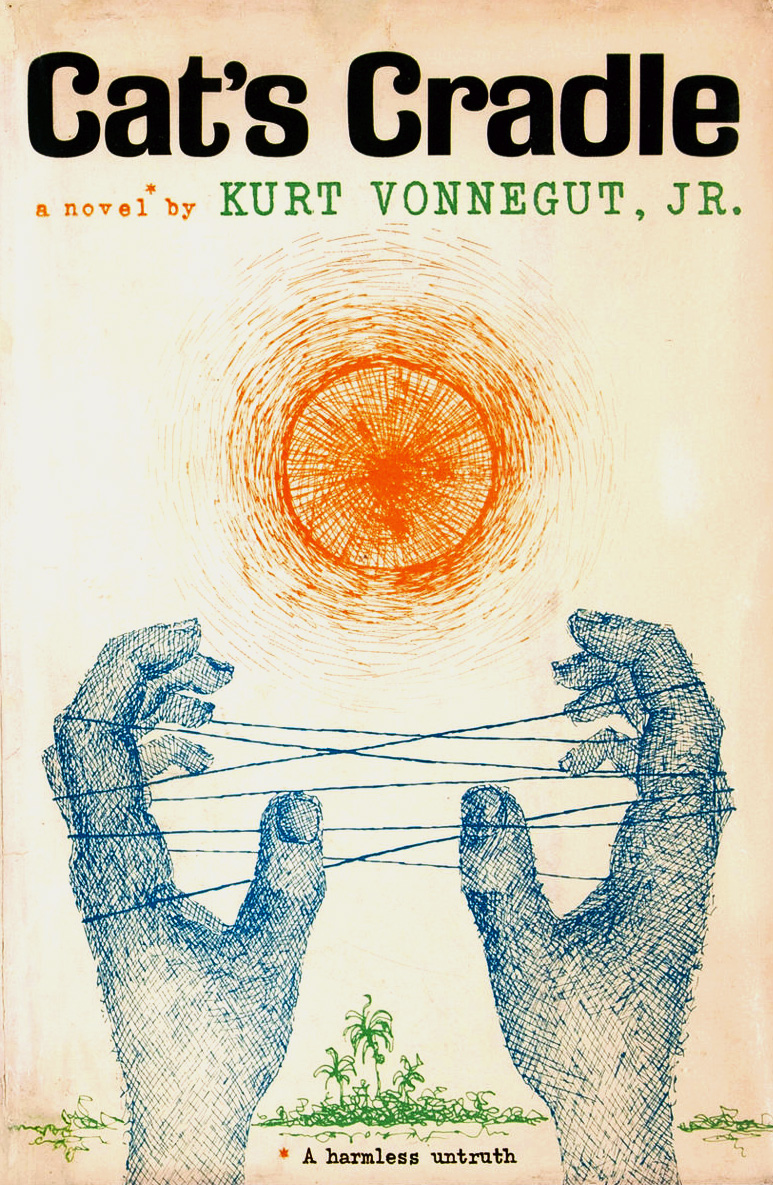Cat's Cradle Review

I have just finished the Kurt Vonnegut’s Cat’s Cradle.
I loved it.
While I would normally form these thoughts into paragraphs and possibly include headings and the like, I am going to simply list my thoughts (sort of like Vonnegut!):
- I especially like knowing where ice-nine comes from. I have seen that reference many times before, and vaguely knew it was from Vonnegut. But understanding the whole story, and the allegory it provides, was really delightful.
- I enjoyed how quick a read it was. Vonnegut has a quick and easy-to-understand writing style, that especially serves his satire well. As someone who is easing back into reading consistently, it is especially nice to finish books on the quicker side to gain momentum.
- The obvious reference to the Manhattan Project and the creation of the atom bomb was fine. I feel like sometimes satire simply cannot age well because writers underestimate both how intelligent humans are and how reckless we can be. While the atomic bomb is seriously one of the scariest inventions we’ve made that could end our species, we’re now dealing with a polycrisis. People are becoming (or have become) numb to total annihilation by war, climate change, societal collapse, etc. Perhaps this would have hit harder during a more optimistic time.
- Side note: the term polycrisis is having a bit of a resurgence nowadays. Apparently it gained its recent popularity from the WEF at Davos (blerg) this year. However, a French sociologist named Edgar Morin created it. This is an interesting introduction to his work and where to read more. The description of his writings piqued my interest.
- The actual “cat’s cradle” reference as a metaphor for the falseness of our social constructs was fun. We give meaning to things that have no meaning, and desperately seek narrative or metaphor to make sense of the random chaos that is life. Another example is the Grandfalloon, and the meaningless associations that we give some level of cosmic importance to.
- The overall “vibe” of the novel seemed as such: bit off more than it could chew. It seemed to cover all sorts of topics, but none adequately. It came close to making a point. Sometimes, it made a point, but extremely bluntly and in one sentence. As someone who is used to reading books with more ~ pomp and circumstance ~, this was a stylistic adjustment. However, I think it really fully reflects the message of the book, which is that our existential angst comes from the fact that our consciousness makes us bite off more than we can chew.
- The ending is extremely abrupt. I expected some level of closure, but found none. A sort of meta-existentialism, which was uncomfortable at first. Upon reflection, I really enjoy that decision, as it ties in with the rest of the book.
Overall, a phenomenal book, and one that I think will become more impactful for me as I age.
Day 23 of the #100DaysToOffload challenge done!